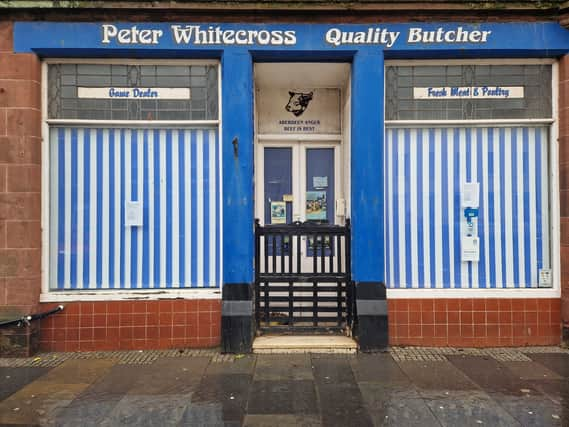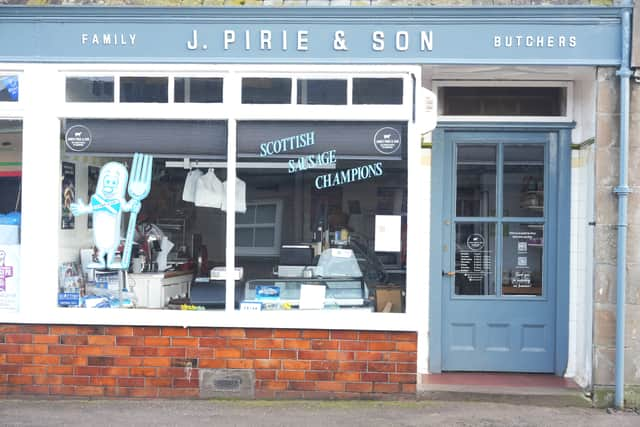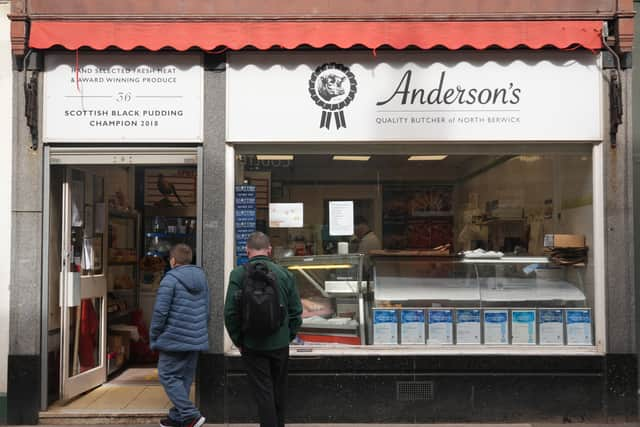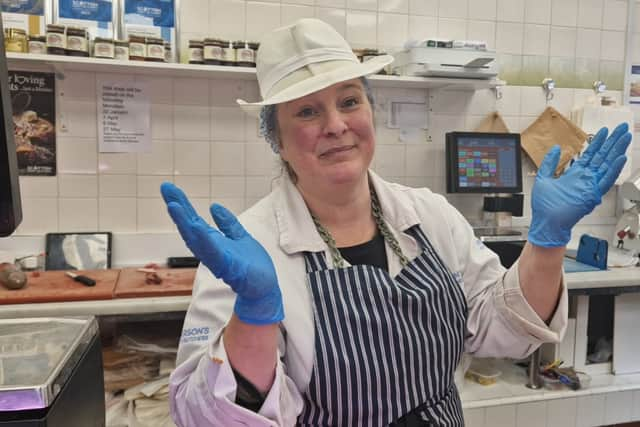Why the wave of local high street butcher closures in Scotland, from Aberdeenshire to the Borders?


High street butchers are up against it, with a wave of recent closures and many having to diversify their businesses to survive the current economic climate.
Walking through Scottish towns and villages as part of Hay’s Way, it’s been particularly noticeable the amount of gutted shop units with goodbye notes in the window or faded signwriting above the door indicating they were once local butchers.
Aberdeenshire Larder in Ellon, Peter Whitecross Quality Butchers in Dunbar, and WJ Hutton in Hawick in the Borders, just to name a few, have all closed in the last few months, citing rising costs of overheads and stock.
Meanwhile, Alan and Norma Pirie, five-time winners of the World Championship Scotch Pie awards James Pirie & Son in Angus, closed their doors for good last week, saying they had no luck finding someone to take on their award-winning business.


The reasons behind the closures seem to vary from business to business, be it from financial struggles to health reasons or retirement.
But the impact of the geopolitical climate on production costs, the rise of the costs of lamb and beef due to a decrease in UK stock, and increasing competition with cheap supermarket deals seem to be a common link among those who have shut and those fighting to stay open.
Moya Anderson, a partner at Anderson’s Quality Butchers in North Berwick, echoed the concerns over price hikes. But she said another issue for the trade has been the lack of staff availability due to limited interest from younger generations.


The Andersons said they were forced to close their nearby Gullane branch due to being unable to find staff in the area.
Speaking to The Scotsman, Mrs Anderson said: “There’s a lack of a culture of young people coming into this trade. There aren’t specific college courses anymore, and there are very few people and organisations that can do apprenticeships.


“I don’t think young people are attracted to jobs like this as much now.”
In terms of the customer, she said younger people were less confident navigating a butcher counter than older generations.
Other butchers have said when they do find staff, retention in the more rural areas is a challenge. Recent Quality Meat Scotland (QMS) figures showed the average age of a butcher is about 50 to 55 years old.
Mrs Anderson also commented on the challenge small businesses have competing with supermarket prices, and keeping customers when large retail complexes on the edge of towns are approved for generic brands like McDonald’s and Greggs.
“There’s a drive to create these big, faceless places and glorify them with easy parking where you get everything under one roof as opposed to walking along your local high street,” she said.
One of those towns includes Huntly, in Aberdeenshire, which saw councillors approve plans for new branches of McDonald’s and Starbucks in December as part of a new business park called Linnorie on the edge of the town.
Planning officers were reported to have said the “positives outweigh the negatives”, while some councillors said they were concerned the town would be “doughnuted” with food and retail businesses keeping people on the outskirts.
Charles Raeburn, of Huntly family-run butcher Forbes Raeburn, said while the development on the A96 may bring more people to the town, there were concerns it would impact an already struggling high street.
“When I first started about 50 years ago, there were five butchers in Huntly,” he said. “There were two during Covid, but now there’s just one.”


He said for a town that has about 4,500 people, having both a large Tesco and Asda had made it challenging for smaller businesses.
With fewer butchers in the area, it has meant the Raeburns’ customer base has expanded, and they have diversified produce on offer.
But Patrick Harrison, a butcher and farmer at Balliefurth Farm in Grantown-on-Spey, said for those who were still in business, it was still very much about survival.
He said even with a loyal customer base around him, energy bill increases in an industry that requires freezers and tills to be constantly running made it hard to see a profit.
“Our electricity bill used to be around £12,000 a year,” he said. “It’s gone up to £33,000 a year, and that’s just in the past two to three years.”
The farmer said beef and lamb prices had increased, with lamb going up from £5 a kilo to £7 a kilo.
“There’s great produce out there and the clients we have are incredibly supportive, which is keeping us going, but there is so much the client doesn’t see in terms of costs,” he said. “It’s not an easy market out there for the independent butchers.”
One company that has recently diversified its business after shutting up shop is Haigs, from Aberdeen.
James and Julie Haig closed their food hall in the city centre after 12 years earlier this year due to costs, but have set up a new mobile butcher unit which they sell ready-made food and produce from while touring around Aberdeenshire.
Gordon King, executive manager at Scottish Craft Butchers, said the industry was still showing resilience and innovation despite the challenges it faced.
“It’s true there are the challenges, but we are seeing butchers adapt and change making their businesses more successful with new ideas,” he said. “Farm shops with inhouse butchers is an example of where this is happening.”
Mr King pointed to a few younger butchers who had started their own successful businesses, including Steven Strachan of Strachan Craft Butchers (Lanarkshire) and Shona Marshall of Marshalls Farm Shop (Aberdeenshire).
He said more than 200 butcher apprenticeship places had been filled this year, showing the keen interest from the younger generations. Gordon Newlands, of QMS, said: “Like all high street shops, butchers have had quite a difficult time, especially during Covid. However, we are seeing a new generation of butchers shops opening now, many of them run by young butchers who are really innovative and entrepreneurial – it’s really exciting to see their businesses grow and develop.”
Comments
Want to join the conversation? Please or to comment on this article.
